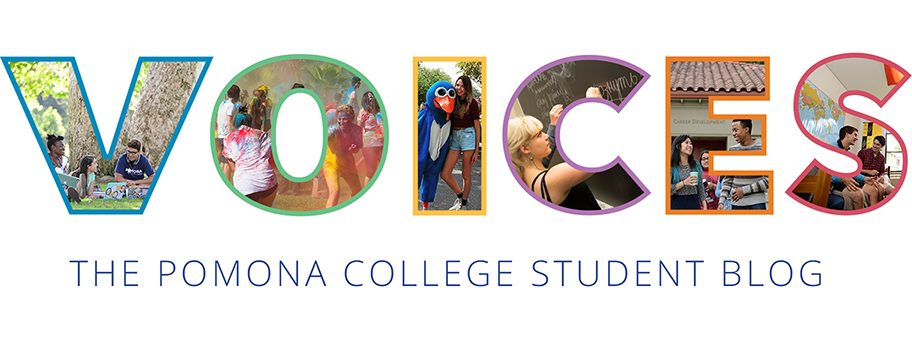 Yes, there is an alarmingly eminent crisis in the general view on liberal arts values. Yes, fewer and fewer people appreciate our well-rounded educational experience while certain approaches herald more pre-professional paths as practical, and thus more worthwhile. But what else has been said in support of the liberal arts education?
Yes, there is an alarmingly eminent crisis in the general view on liberal arts values. Yes, fewer and fewer people appreciate our well-rounded educational experience while certain approaches herald more pre-professional paths as practical, and thus more worthwhile. But what else has been said in support of the liberal arts education?
“The technology issues facing us today—issues of identity, communication, privacy, regulation—require a humanistic perspective if we are to deal with them adequately. If you actually care about one of those topics—if you want to do something more serious about it than swap idle opinions over dinner—you can. And, I would venture, you must. Who else is going to take responsibility for getting it right?”
– Excerpt from keynote address delivered by Damon Horowitz, in-house philosopher at Google who graduated from Columbia and then MIT in natural language processing. Read his full speech here.
Even though Horowitz may be making these claims because he has already reached a coveted level of prestige and success, his evaluation of the gaps in his knowledge – gaps that pointed to the necessity of understanding the humanities – testifies to the importance of exploring seemingly unrelated and diverse disciplines.
As former faculty member David Foster Wallace suggested in his commencement speech, the liberal arts college teaches you not only how to think but “what to think about.”
“‘Teaching you how to think’ is actually shorthand for a much deeper, more serious idea: ‘Learning how to think’ really means learning how to exercise some control over how and what you think. It means being conscious and aware enough to choose what you pay attention to and to choose how you construct meaning from experience. Because if you cannot exercise this kind of choice in adult life, you will be totally hosed. Think of the old cliche about ‘the mind being an excellent servant but a terrible master.’ This, like many cliche, so lame and unexciting on the surface, actually expresses a great and terrible truth. It is not the least bit coincidental that adults who commit suicide with firearms almost always shoot themselves in the head. And the truth is that most of these suicides are actually dead long before they pull the trigger. And I submit that this is what the real, no-bull- value of your liberal-arts education is supposed to be about: How to keep from going through your comfortable, prosperous, respectable adult life dead, unconscious, a slave to your head and to your natural default-setting of being uniquely, completely, imperially alone, day in and day out.”
His wonderfully perceptive insights were recently built upon by Professor Susan McWilliams, a speaker at Pomona’s Last Lecture Series. She proposed that the liberal arts additionally prepare individuals to consider how to earn the “privilege” (one that is so often mentioned at the 5C’s) of this opportunity to define for ourselves “what to think.” And what we think, not merely how we think about it, can transform ourselves, our relationships and our world.
At schools that focus on pre-professional programs that equip students for specific fields of work upon graduation, students may feel dismayed at the number of requirements they need to attain for their specific program. And this, in turn, could potentially deter them from considering any additional class that does not directly contribute to their program requirements. Heck, even as a student at a liberal arts school, I often feel that way; I am often tempted to take “useful” classes that could potentially build towards a major or two (and, you know, an additional minor couldn’t hurt, right?).
But on what basis do I define and judge the “utility” of a course? There absolutely is beauty in attaining a double major where you come to know two subjects deeply, but what about the handful of classes I could alternatively take, classes that won’t come together to manifest themselves on my diploma as an additional laurel of academic glory, but will inform my formative undergraduate years in a more profound and personally meaningful way? Why do I underestimate the “utility” of learning about film, Medieval Mediterranean history, or music theory in light of other classes? (Note: I am in no way suggesting that my opinions reflect what academic areas other Pomona students value, but just my own thought processes.)
Through my own experience, I believe that Pomona’s system of area requirements helps students strike a healthy balance between comfort and unfamiliarity, and also structures the requirements in a way that helps students understand that education is not about the knowledge they amass within the confines of a certain subject, but the relationship between the modes of inquiry involved in a wide range of subjects.
Not only do the area requirements prompt students to venture out, but subjects learned in tandem enrich one’s understanding of each. For example, I know of a friend who is passionate about studying chemistry, but decided to take an art class on a whim. Although she took the art class rather lightly at the beginning, this course revealed her interest in design, and specifically fashion design, and she proceeded to consider the implications of combining chemical engineering with fashion design to create sustaininable fabrics that were comfortable, trendy, and environmentally friendly to produce.
Yes, you can craft a “liberal arts education” at any school you attend and use that liberal arts lens to approach your studies and your future decisions, but isn’t it so much more powerful to join other students who seek that type of intellectual gratification and spend four years wrestling with the meaning of learning and valuing this approach? I, in part, am publishing this so that in the future, when others try to convince me that my pursuit in living the liberal arts is a naïve and rosy one, I can be reminded that I am joined by many admirable leaders in this pursuit.
